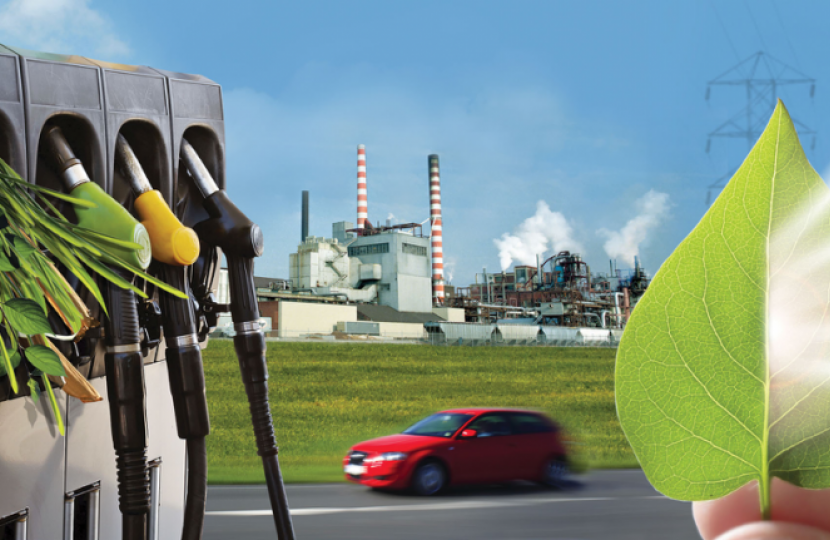
Is bioenergy the bad apple in our net-zero ambitions?
Recent gas price rises have made life increasingly difficult for many families. Fuel poverty is a challenge many of my constituents are, sadly, all too familiar with.
Although this crisis has been driven by our reliance on fossil fuels, there are still cries to delay action on climate change. This would undermine the UK's and the Conservatives’ global leadership on this issue. We must deploy more renewables to protect against rising bills and fulfil our commitment to decarbonising the electricity system by 2035.
Disappointingly, this aspiration risks being undermined by our reliance on bioenergy. Current renewable energy subsidies are funnelled not just towards clean, cheap solar and wind, but also towards burning vast quantities of biomass in the form of imported wood. Bioenergy is subsidised to the tune of millions of pounds a year, making up almost 30% of the UK’s ‘renewable' energy mix. This comes almost exclusively from burning wood pellets harvested overseas.
The problem is that burning wood releases more carbon dioxide than coal, and trees take decades to grow back. It is assumed that the carbon released at UK bioenergy power stations has already been counted in the country the trees came from. But in many countries these emissions aren’t counted properly, or at all. Households in the UK are left footing the bill for this industry through renewable energy subsidies, despite the millions of tonnes of emissions it produces.
As well as releasing forests' massive carbon stores into the atmosphere, this logging harms wildlife. The UK gets much of its wood from Estonia, where trees are felled even in nature reserves. Biomass also comes from the southeast US, where trees are cut down within one of the world's global biodiversity hotspots. And it’s logged and imported from the world’s largest remaining intact forest, the Boreal, in Canada.
Bioenergy means hitching our wagon to a fuel that’s almost entirely reliant on imports, including from Russia. That hasn’t been a good strategy when it comes to our gas supplies. The alternative would be growing energy crops in the UK on vast tracts of land, displacing food crops or nature.
Hundreds of scientists have been warning about this for years. The financial sector has removed biomass from green indexes. Minister Zac Goldsmith has said that we must look again at the mass imports of trees for fuel. My own Private Members’ Bill, which I recently introduced to Parliament, showed that we have for too long ignored the carbon embodied in wood for construction. We must move to more sustainable building practices, and we cannot afford to burn our precious timber resources for biomass fuel.
Despite this, a new technology, Bioenergy with Carbon Capture and Storage (BECCS) features heavily in the UK's net-zero plans. As a member of the Environmental Audit Committee, a group of MPs whose job is to scrutinise the government’s environmental record, I recently heard evidence on the feasibility of technologies like BECCS.
In theory, this technology removes the carbon released from the burning of biomass, but there’s little evidence it will work in the real world or at the scale required to reach net zero. Burning trees will continue to increase emissions and threaten the forests that people and wildlife rely on.
The UK has staked its international reputation on climate and nature. We spearheaded the Leaders' Pledge for Nature, led the negotiations at COP26 and have committed to protecting 30% of land for wildlife here at home. Yet our pursuit of bioenergy is putting nature at risk in many countries.
We expect the government to publish a new Biomass Strategy this year. This strategy must look again at the role of bioenergy and reduce our reliance on BECCS. We can counter the current plans by retrofitting homes to be warmer and more efficient; saving people money by redirecting funds into measures that produce genuinely renewable energy and cut emissions; and restoring nature that can absorb carbon, not release it.
The Conservatives have used the last decade to root for net-zero and renewable energy across Government. We must use the next decade to root out the bad apple of industrial bioenergy that gives renewables a bad name, makes climate change worse and threatens the world's precious forests.

